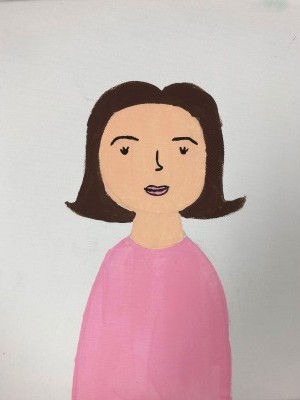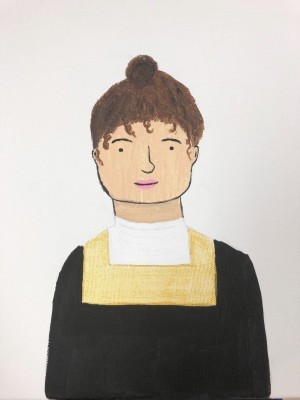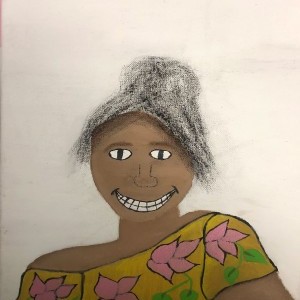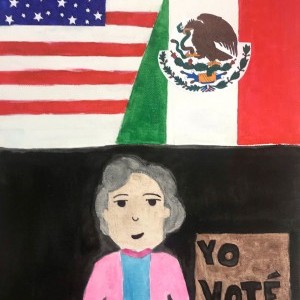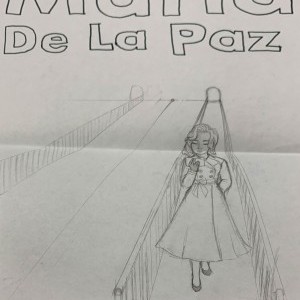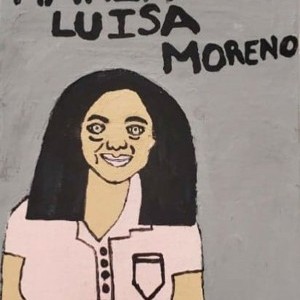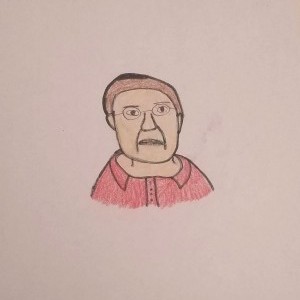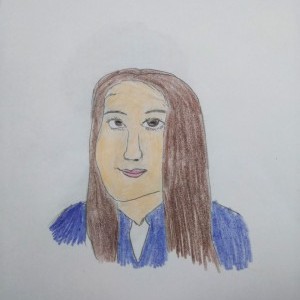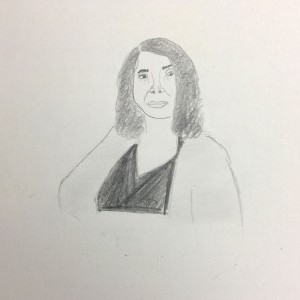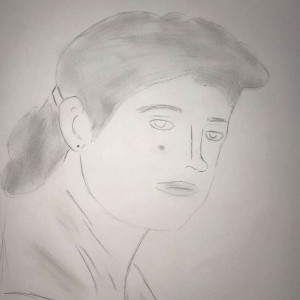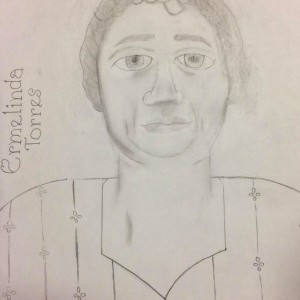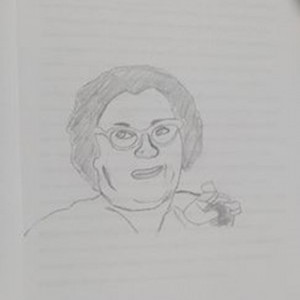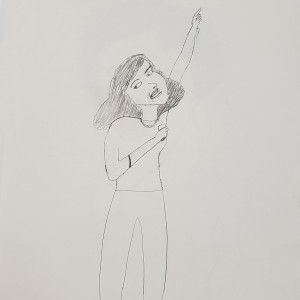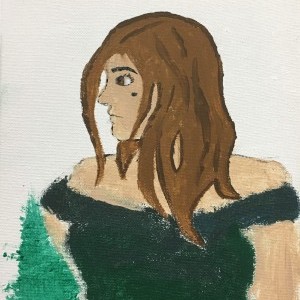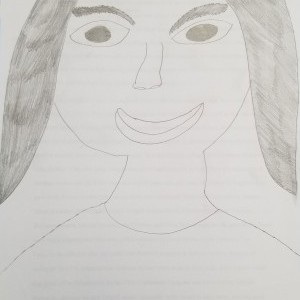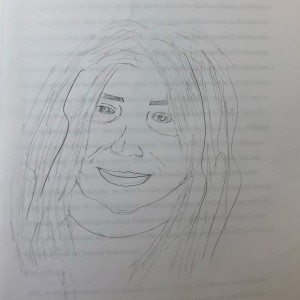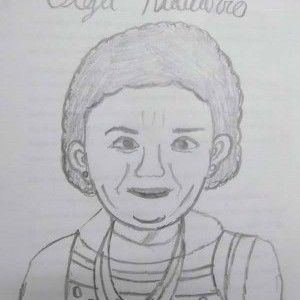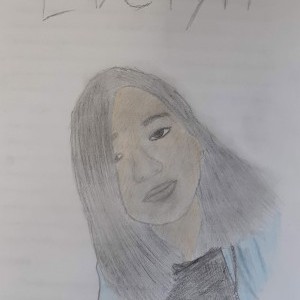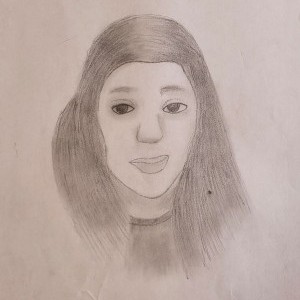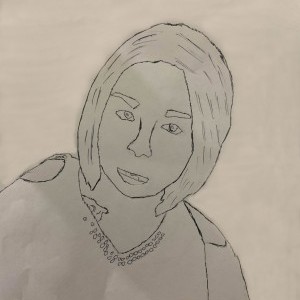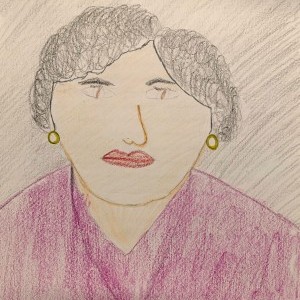Sophia Flores
García Early College High School | Laredo, TX | 10th Grade
Inspirational Family Member
My Grandmother
Alicia Rodriguez Flores, my grandmother, was the first female in my family to vote and hearing about her experiences inspires me to learn from her story and her life. She was 22 when she voted for the first time for Hubert Humphrey in 1968 and decided to do so because she felt he had the right ideas about how to lead the country into the future she wanted for her children. When he lost, she felt angry and like her vote did not matter; however, she says this was due to her hatred for Richard Nixon, who became the President-elect. Nevertheless, she notes that she has never regretted voting and insists that I exercise my right to vote when the time comes.
She married my grandfather, Amador Flores, and had four kids. First, she had a girl, Marta, then three boys: Amador, Jr., Hector, and Jesus. My dad, Amador, Jr., was born the year after she voted for the first time. She hadn't voted before because she did not have the time. She was too busy working to have enough money to raise her family. Both my grandmother and grandfather worked at a supermarket all the way until retirement. With this, the money was spent to help pay what they could to help my dad go through medical school and for my uncles and aunt to go to college.
As an uneducated Mexican-American, she was very grateful for her job and thus was very grateful for what she had. According to her, the most important thing at the time was her family, so she took what she could get. Her hard work paid off immensely. Now, she has six grandchildren, a nice home, and very successful kids. She celebrated her 50th wedding anniversary with my grandfather last year.
Historical Figure I Admire
Lady Constance Lytton
Women's suffrage is one of the most courageous and noble things any person can fight for; this reach for equality is usually done by the strongest women the world has to offer. Lady Constance Georgina Bulwer-Lytton, an upper-class woman, was one of the tremendously influential suffragettes women have to thank for the advocation of women's rights. As a member of the Women's Social and Political Union (WSPU), a militant group of suffragettes, Lady Constance Lytton persevered through imprisonment, became a writer and speaker, and promoted voting and birth control for women in Britain during the Edwardian period. Unfortunately, she died in 1923 at the age of fifty-four from a heart attack and stroke brought about by the sufferings she experienced while imprisoned – but not without leaving behind a remarkable legacy in her efforts for equality.
In 1908, when she was 39 years old, Lady Constance Lytton fully assimilated into the militant suffragette movement working for the WSPU by speaking across Britain about women's rights. She was also able to utilize her upbringing and title to campaign in Parliament and requested that the Home Secretary, Herbert Gladstone, release Emmeline Pankhurst and Christabel Pankhurst (fellow suffragettes) from prison.
However, in 1909, Constance Lytton was imprisoned herself in Holloway prison after demonstrating at the House of Commons. She had taken the name Jane Warton as an alias to hide her identity as a lady because she refused to receive special treatment; therefore, the authorities ordered her release when it was revealed she was the daughter of Lord Lytton. Constance Lytton had a weak heart which caused health problems and her hunger strikes worried the British government as well as her family which also contributed to her release. Rather than feeling relief, Constance Lytton was furious at the inequality of justice and even complained to the Liverpool Daily Post about the advantageous treatment.
One of the most famous things this suffragette is applauded for was her body mutilation in the name of equality. While imprisoned in Holloway Prison, she carved a “V” on her breast to advocate for a woman's right to vote by using a broken hairpin. In that same year of 1909, Constance Lytton was arrested for a second time in Newcastle. Her offense was having thrown a rock with a message wrapped around it: 'To Lloyd George: Rebellion against tyranny is obedience to God–Deeds, not words.' This was in response to the cruelty of being force-fed while on hunger strike that she herself experienced while in prison.
Constance Lytton's third imprisonment due to throwing rocks lasted 14 days where she was force-fed 8 times (again under the alias of Jane Warton). Accounts of her experience were sent to The Times and Votes for Women, the monthly journal of the WSPU. In fact, it is believed that her speeches and writings of the matter are what ended the practice of force-feeding.
In 1911, even though her right side was paralyzed after a series of strokes, she continued her efforts for women's rights and was subsequently imprisoned a fourth time in Holloway after breaking windows in the Houses of Parliament and a Post Office in Victoria Street, London. This final experience in prison was far different from her previous experiences; she described it as “unrecognizable.” In 1914, the WSPU's militant campaign ceased after the outbreak of war. Nevertheless, Lytton was not finished. She supported Marie Stopes' efforts to establish birth control clinics to continue her fight for women's rights.
Lady Constance Lytton was a fearless suffragette who put aside her own personal benefits in her fight for true equality. Her efforts did not go unrecognized as Parliament passed a bill in 1918 wherein women over 30 could vote. Buried with the purple, white, and green suffragette colors, she was admired by her peers and is thanked for her work in the long-fought battle for equality.
SOURCES +
What the Project Means to Me
Her influence is a strong presence in my life, and I admire her greatly; we think very similarly, and her own opinions or views influence my personal political opinions. She inspires me to work hard for my own betterment and not to stop until I am happy. In fact, she lives by this principle: if you are unhappy with something, change it. This rule calls for change and change for something that may make me unhappy can arise through voting. Women advocated for this right that we have had since 1920. Knowing this, I greatly value my right and its importance on all levels. Every vote matters because every voice matters, from voting for a city councilman/woman or a president because our government works for the people, by the people.
My grandmother's influence extends through my parents onto me, and I will one day continue her legacy when I can vote. She was the first woman in my family to vote– and she will not be the last. This privilege will last forever and I will raise my kids to speak up through voting, as she did. Being born into this privilege, it is hard to think about how prejudiced the world must have been before we even had the right to vote (which came about 100 years ago, and is not as long of a time as it sounds.) It makes me even more appreciative of my right to vote thanks to women's suffrage and being able to vote is something I greatly look forward to as a way to thank the women who gave me that right.
Explore the Archive
More From This Class
Click on the thumbnails below to view each student's work.Deadline Extended
There's still time to join Women Leading the Way.
Become a part of our storytelling archive. Enroll your class today.
Join the Project

